Johannes Seiler GS160 Grand Piano
CAD 29,995.00
-
There are many who would argue that 160cm is where the real grand piano world starts. The bass strings get longer, the soundboards get larger, and the proportions seem to ‘look’ right. That said, few instruments truly deliver the promise that these expanded proportions within a ‘mainstream’ budget range. Particularly for customers who are seeking an alternate tone or touch to the leading Kawai GL-20 or GL-30, or market regular Yamaha GC1.
Enter the Johannes Seiler GS160. A remarkable instrument of aesthetic distinction and musical surprise.
Description
Product Overview
The GS160 grand piano is a 5’3” instrument with a substantial tone and remarkable poise, sharing several features that would exceptional power, elegance, and quality. It remains the only piano of its size and price range to offer vertically-laminated bridges (a Steinway-pioneered feature typically found on grand pianos $30,000 and above). It is one of the few true wide-tail designs. Its scale designs are computer-generated, and its action competes with a Yamaha CX without question.
For homes seeking a full and complex tone, either for casual playing, elegant feature, or more advanced student progress, the Johannes Seiler GS150 should be seriously considered by any buying family fortunate enough to have it available in their market.
Samick Action
The Johannes Seiler GS150 uses SMC’s standard action, regulated to a higher level than what is found in some other SMC’s brands. The quality control is rigorous and well documented, resulting in an action that requires very little work from a dealer to render a responsive and satisfying experience for players.
Woody Mid-Range Tone
The sound of the GS160 is round, slightly woody mid-range, a present but non-metallic or pushy bass, and a clear treble with typical sustain but far more complex overtones than average. The best musical comparison to this instrument would probably be a darkly voiced Kawai GL-20. It dwarfs the GL-10 and Yamaha GC1’s tonal output to the point where side-by-side comparisons feel comical. (Of course, the GL10’s action and treble sustain outperform that of the GS150, so with all things, it is a matter of priority).
German Abel Hammers
The SG160 uses German Abel hammers, a rebuilder and manufacturers choice, and one of the premium OEM hammer manufacturers in the world. It produces a slightly darker, warmer, and more powerful sound than a typical Japanese hammer.
Spruce Core Soundboard
Johannes Seilers use spruce core soundboards with spruce layering on top – a technique formerly associated with lower cost pianos, but now found on instruments well into the $30,000 range by a number of makers. As Seiler has been able to find improved ways to increase resonance with the stiffer soundboards, their tuning stability and much better strength in varied climates have made them excellent choices for owners seeking lower-maintenance pianos without sacrificing musical performance.
Variety of Rim/Cabinet Options
The finishing quality and options available on Johannes Seiler pianos is amongst the most varied in the industry – with multiple plate colours, wood veneers, premium brass and nickel hardware available to customers for attractive prices.
The piano uses a hardwood support structure and a beech rim.
Specs
| Size | Length | 5′ 2 1/4″ |
| Width | 59 1/2″ | |
| Height | 40 1/2″ | |
| Weight | 617 lbs | |
| Warranty | 10 Year FULL Manufacturer’s Warranty |
Reviews (0)
Be the first to review “Johannes Seiler GS160 Grand Piano” Cancel reply
You must be logged in to post a review.
You may also like…
Seiler Grand Pianos
ED Seiler (Eduard)
Seiler Grand Pianos
Grand Pianos
ED Seiler (Eduard)
Grand Pianos
Grand Pianos
Related products
Grand Pianos
Grand Pianos
Grand Pianos
Grand Pianos
Grand Pianos
Grand Pianos
Grand Pianos
Grand Pianos
Grand Pianos
Grand Pianos
Grand Pianos
Grand Pianos



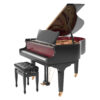



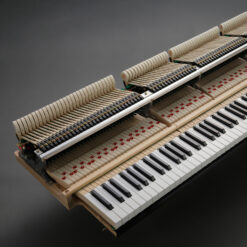
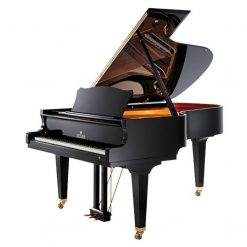

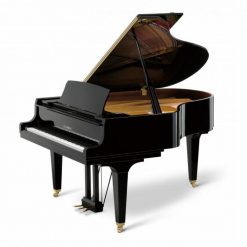

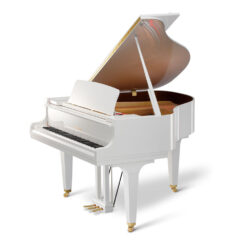








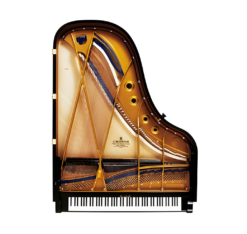



Reviews
There are no reviews yet.